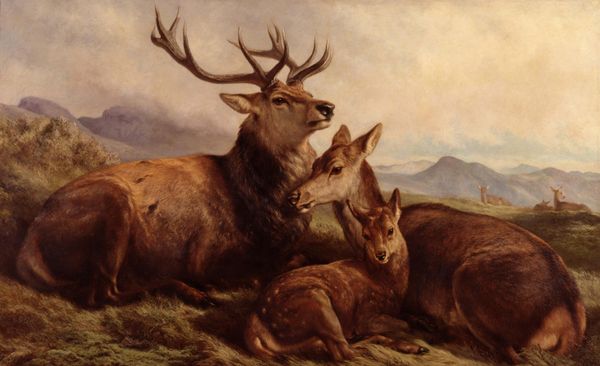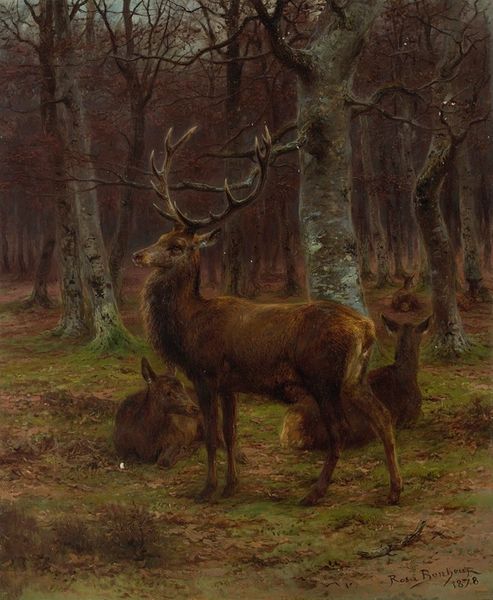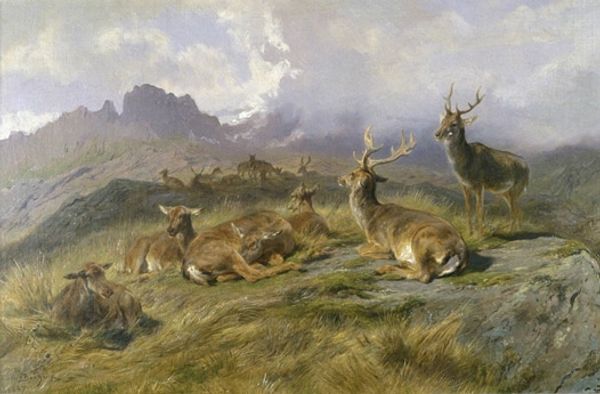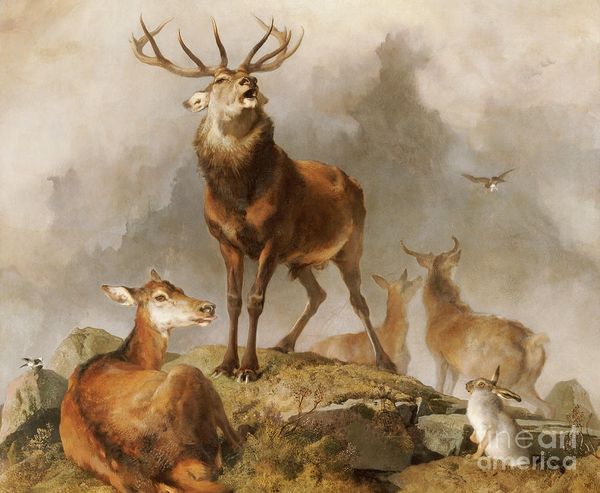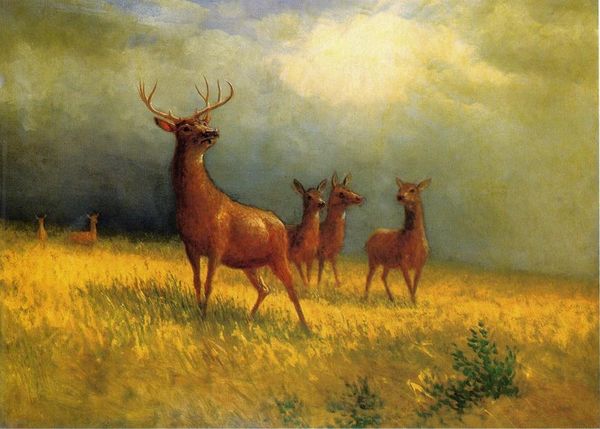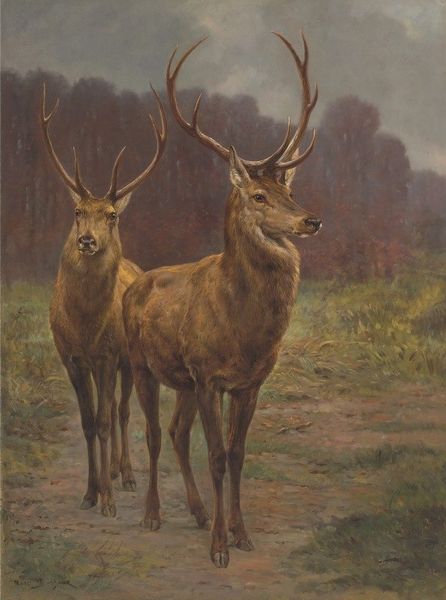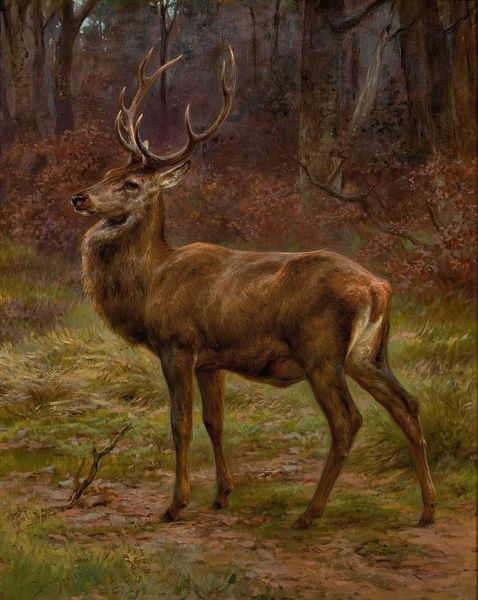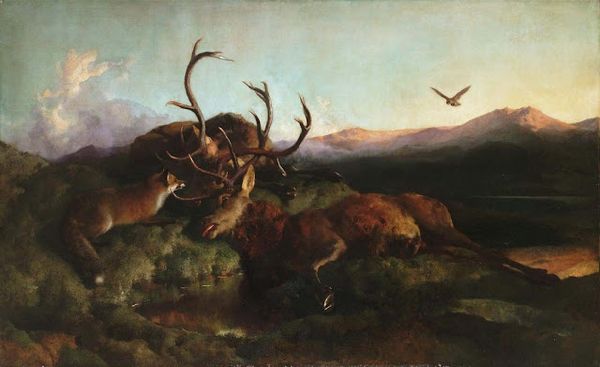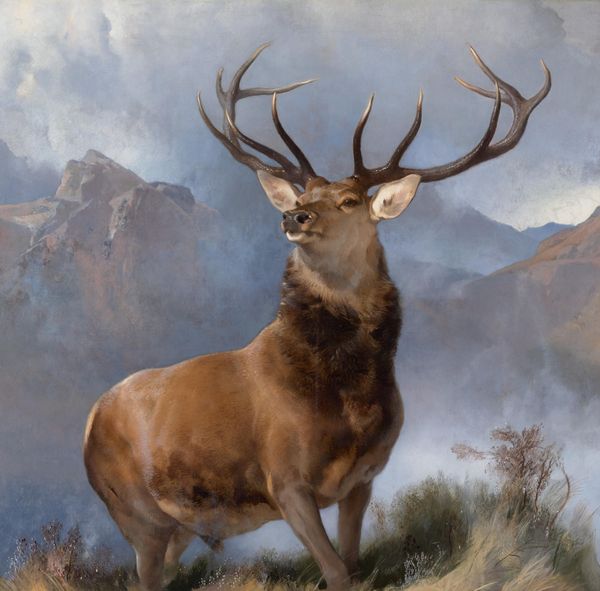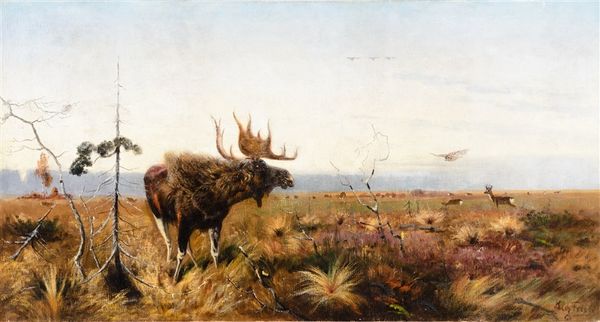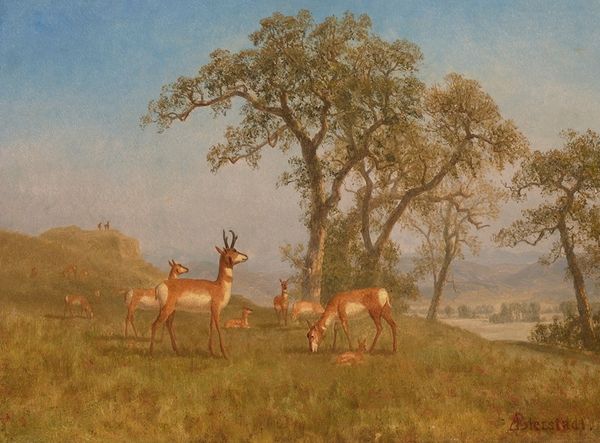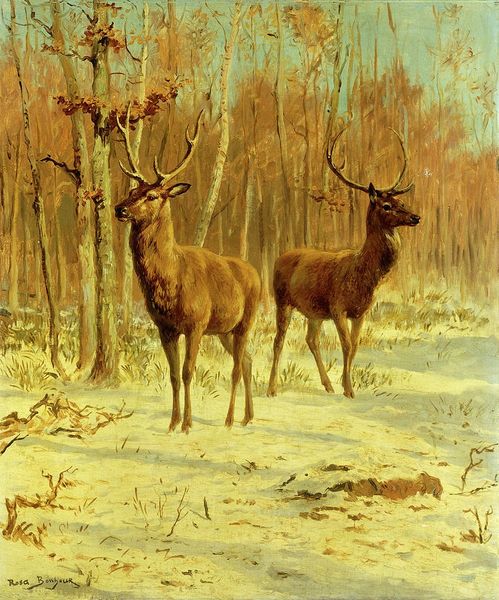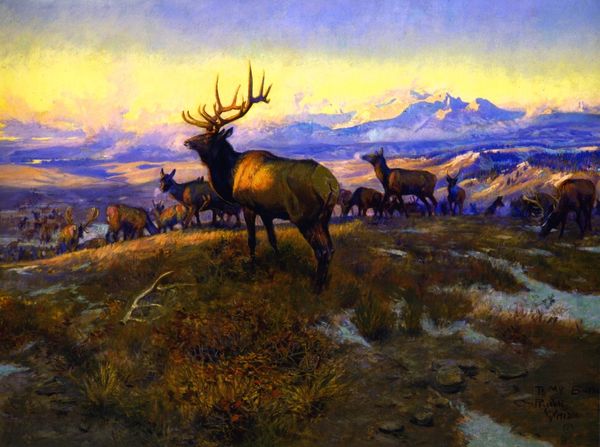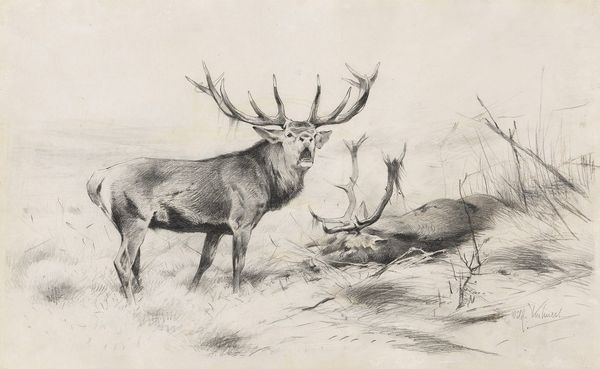
Copyright: Public Domain: Artvee
Curator: Here we have Rosa Bonheur's 1868 oil painting, "The Monarch of the Herd." Editor: Immediately I'm drawn in by that powerful stag, standing so proudly. There's a serene majesty, but also a vulnerability in its watchfulness, don't you think? Curator: Absolutely. Bonheur was known for her incredibly detailed animal portraits, reflecting a deep respect for the natural world, and in many ways seeking to celebrate these often marginalized existences in a way mirroring how she navigated a male dominated art world. Editor: The subdued palette – the misty greys and earth tones, it feels almost… nostalgic. It evokes that feeling of standing in the Scottish Highlands, the quiet punctuated only by the wind. It's an emotional landscape as much as it is a physical one. Curator: Romanticism, as we know, elevated landscape painting to convey the sublime power of nature, which often stood in sharp contrast with early industrial representations. In Bonheur's artistic environment this portrayal of an untouched landscape carried both a certain degree of idealization and political weight. Editor: Political? I see more poetry than politics here! The way she renders light on the stag's fur, the subtle variations of color – it's almost like she’s anthropomorphizing the scene, giving the animal nobility without lapsing into pure sentiment. Curator: Perhaps, but look closer at how the industrial revolution reconfigured the countryside. Works such as this contributed to ideas about environmental responsibility and sustainability. Her choice of subject can be viewed through her own particular biography in combination with a socio-political and cultural lens. Editor: Hmmm. Maybe. But it just feels so genuine. It's the way she captures their stillness, their natural postures. I guess art can carry many interpretations, it can spark action and represent one. Curator: Indeed, her artwork was groundbreaking as Bonheur challenged gender norms within both art and wider social culture by proving to the world that the field wasn't an exclusively "male realm" but something that the female population could partake in also. Editor: Well, I leave seeing it as more than just animal portraiture, maybe art is just politics with nicer window-dressing. Curator: I wouldn’t put it quite that way, but seeing through both lenses can expand our perspectives considerably.
Comments
No comments
Be the first to comment and join the conversation on the ultimate creative platform.
